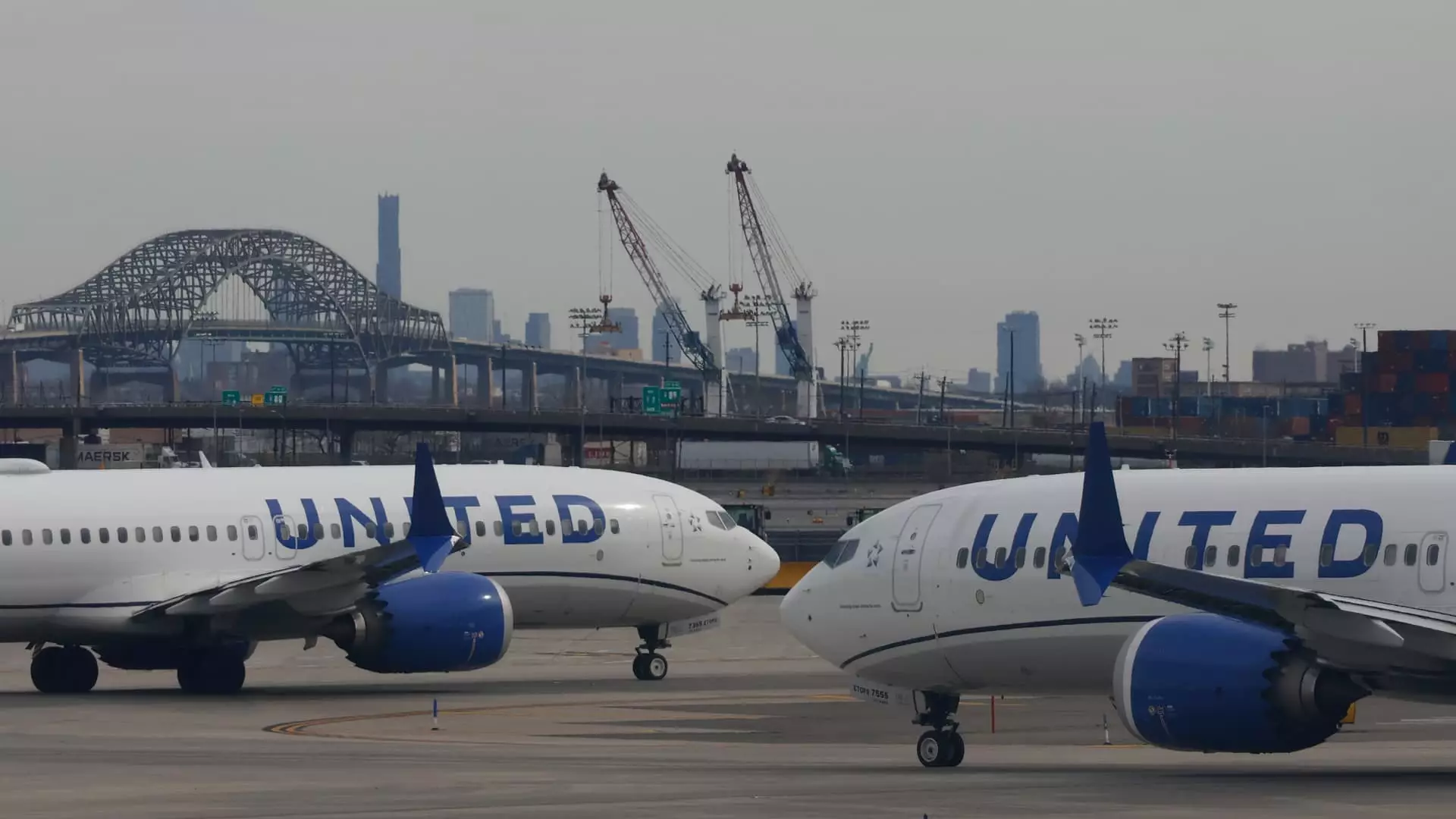Recent events at Newark Liberty International Airport epitomize the chaotic conditions plaguing our country’s air travel system. United Airlines’ CEO, Scott Kirby, announced plans to cut 35 daily flights from Newark, a decision sparked by severe delays and passenger frustrations. This isn’t merely a logistical issue; it’s a reflection of systemic failures within air traffic control, exacerbated by staffing shortages and outdated technology. As these factors converge, it raises significant concerns about the reliability of air travel, especially in one of the nation’s most congested airports.
The sheer scale of the disruptions is astounding; over 300 flights were delayed just one recent Friday, layered on top of the staggering 1,400 cancellations and delays earlier that week. These statistics should not just alarm the airlines; they should rattle the very foundations of confidence that Americans place in the aviation sector. As we enter a new era of potentially heightened travel demands, we must ask: is this merely a blip, or is the air travel industry on the brink of collapse due to stagnation?
Blame Game: The Real Culprits Behind Delays
Kirby attributes the chaos to “structural FAA staffing issues,” a notion not without grounding. The Federal Aviation Administration (FAA) has long struggled with air traffic controller shortages, a reality further exacerbated by COVID-19. To put it bluntly, if the system is broken, how can we expect the airline industry to function seamlessly? Furthermore, the ongoing technology failures contribute to an already volatile situation, wherein a lack of updated tools hampers operational capabilities and smooth outflows of air traffic.
Federal attempts to remedy the air traffic controller shortage through incentives aren’t enough. They feel more like band-aids over a gaping wound. Where is the forward-thinking strategy? As a nation, we need not only short-term solutions but a comprehensive plan to train and sustain a robust workforce that can handle the complexities of modern air travel. Otherwise, we risk leaving passengers in turmoil as they navigate endless wait times and unexpected cancellations.
United Airlines: A Company Caught in the Middle
While it’s easy to point fingers at United Airlines for the inconveniences experienced by its passengers, we must analyze the broader context. The airline is essentially a pawn in a game with rules far beyond its control. Kirby’s choice to waive change fees and fare differences for affected travelers indicates an understanding of the passenger’s plight, demonstrating an attempt to maintain customer loyalty amid crisis. However, the real question remains: is that enough?
Given the mounting pressures to deliver excellent service against the backdrop of systemic failures, United Airlines is being pushed into an unenviable position. We must urge ourselves to rethink our transportation policies and infrastructure investments, no longer accepting an underperforming status quo. Is it not time to exert pressure on the government to bolster funding for air traffic control staffing and innovations?
These recent travails at Newark highlight an urgent need for reform not only within United Airlines but across the entire aviation spectrum. Without tangible change, we could very well be on the precipice of a transportation disaster, where air travel becomes synonymous with frustration and delays rather than efficiency and convenience. The flying public deserves better, and it is our responsibility to demand it.

